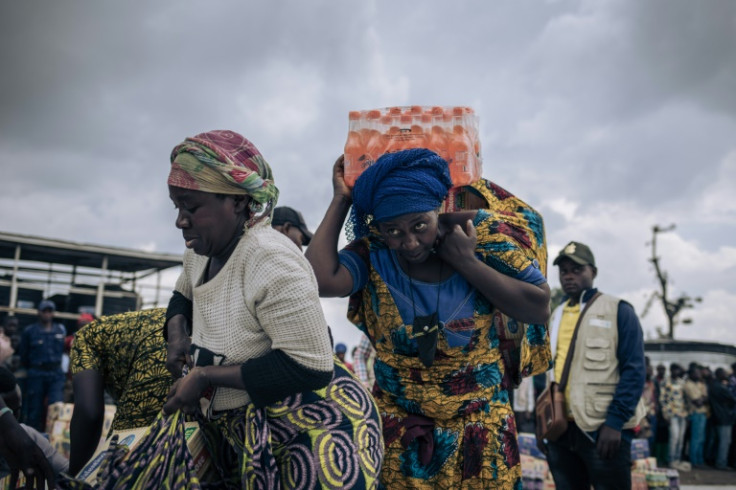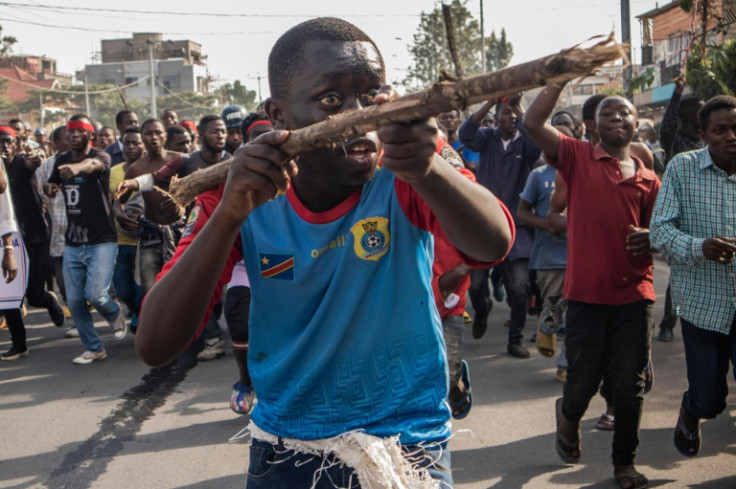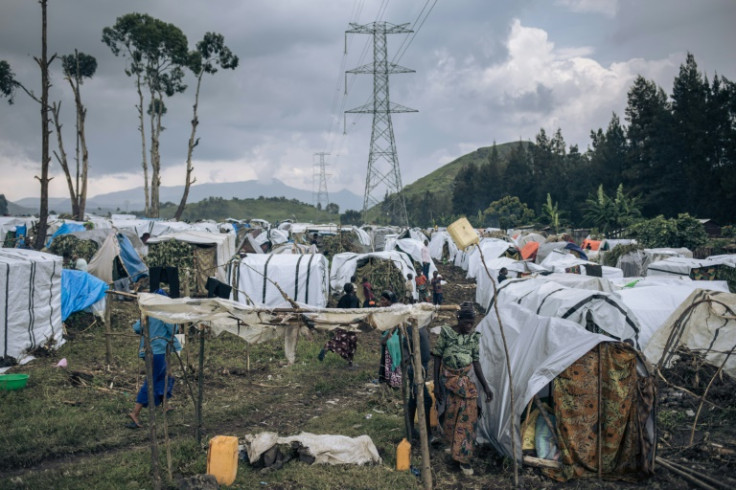10 Years After Rebel Occupation, East DR Congo City Fears New Assault

In the eastern DR Congo city of Goma, fears are rising of an imminent assault by a bloody rebel group whose resurgence has stoked diplomatic tensions in central Africa.
A predominantly Congolese Tutsi militia called the M23 has returned after years of dormancy, conquering swathes of territory in troubled North Kivu province.
After a string of victories over the army, the M23 fighters are as close as several dozen kilometres from Goma, a commercial hub of a million people that it briefly captured a decade ago.
Militiamen over the weekend were in control of Rugari, a settlement about 30 kilometres (18 miles) north of the city, according to violence monitor Kivu Security Tracker (KST).
Many citizens now dread what could come next, and food prices are rocketing.
"My children refuse to go to school, they think it (the assault) could happen at any moment," said Nsimire Foybe, a 58-year-old mother of eight, who sells potatoes and beans in Goma's lively Birere market.
She added that a fellow vendor was so shocked on hearing of the M23's vow to capture the city that she suffered a miscarriage and was still in hospital.
The M23 captured Goma in 2012, a move that gave it global prominence, but was beaten back by a joint Congolese-UN offensive and went into the sidelines.
The group took up arms again in late 2021, claiming that the Democratic Republic of Congo had failed to honour a pledge to integrate them into the army, among other grievances.
In June, it captured the strategic town of Bunagana, which lies on the border with Uganda.
Months of relative stasis have ended with the M23 capturing a string of settlements and a large army base, dramatically increasing the territory under its command.
The militia has also cemented control over the highway leading out of Goma, sending the prices of basic goods such as rice and flour soaring in the city. Many people are afraid that food will run out.
"The situation is going to become untenable," said Giramata Mwiza, a wholesaler in Birere, one of Goma's biggest markets.
The M23's resurgence has destabilised regional relations in central Africa, with the DRC accusing its smaller neighbour Rwanda of backing the militia.
Despite official denials from Kigali, an unpublished report for the United Nations seen by AFP in August pointed to Rwandan involvement with the M23.
The report added that the M23 plans to capture Goma in order to extract political concessions from the government in Kinshasa.
On Saturday, amid fresh M23 victories, the DRC decided to expel Rwanda's ambassador.
Goma lies at the foot of an active volcano, Mount Nyiragongo, and is surrounded by rich, fertile soil.
Within the city, residents anxiously trade news about the front, although the situation remains relatively calm.
Some have been cut off from loved-ones, such as motorbike driver Emmanuel Bahati, whose wife and children are stuck in Rutshuru, 70 kilometres (43 miles) to the north.
"We're afraid -- they're criminals," Issa Ruchekere, another motorcycle driver, said of the M23.
If the group enters the city, blood will flow, he predicted.
"They consider us all FDLR," he explained, referring to the Forces for the Liberation of Rwanda (FDLR) -- a notorious Hutu rebel movement involved in the 1994 genocide of Tutsis in Rwanda.
Kigali argues that the DRC works alongside the FDLR, something which Kinshasa has denied.
Human Rights Watch said last month that the DRC army had fought alongside several armed groups, including the FDLR, in recent clashes with the M23.
Mwisha Dina, who lives in a western district of Goma, said he vividly remembered the day in 2012 when the M23 entered the city.
"We were under heavy gunfire all night and the next day. I don't want to see those days again," he said.
On Monday, thousands in Goma protested against Rwanda and demanded weapons in order to be able to resist an attack on the city.
Fiston Ketha, 36, who attended the demonstration, said that residents will be targeted because "the rebels know that the population is against them."
Denise Kahambu, a cloth merchant in the north of the city, said she wasn't afraid of an assault.
"If they come, we'll exterminate them," she said.



© Copyright AFP 2025. All rights reserved.




















